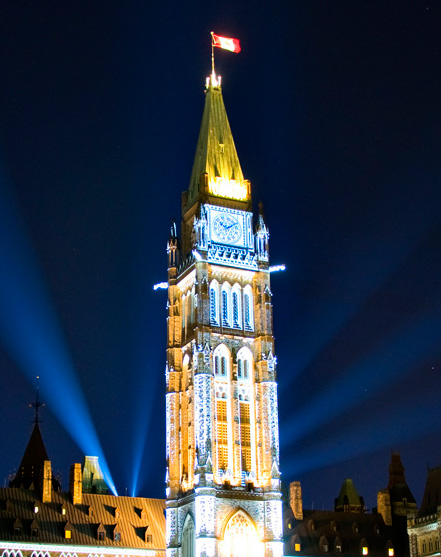Byelections are strange political beasts; blizzards of electoral activity of moot significance. There is an intense desire to discern significance in their minutiae, seeking smoke signals that portend the next election.
The federal byelections of November 25, 2013 provide us with yet another opportunity to toss the political tortoise shell onto the federal fires and see which way the cracks radiate. Four ridings, Bourassa in Quebec, Toronto Centre in Ontario, and Brandon-Souris and Provencher in Manitoba were up for grabs, the former two held by the Liberals, the latter by the Conservatives. And, after months of electioneering, the results are — drum roll please — the election of two Liberals and two Conservatives from their respectively incumbent ridings. Ho, hum: the return of the status quo.
To the degree that byelections can be said to be about something (aside from local issues and local candidates) they are legitimately understood to be a kind of mid-term barometer with respect to the performance of the governing party. In that regard, the results for the Conservatives are not encouraging.

In all four ridings Conservatives lost significant support, from 17.8 per cent of their support in Provencher (a Conservative fortress) to 61.6 per cent of their support in Toronto Centre. In the only race that very nearly resulted in an upset, Liberal candidate Rolf Dinsdale drew 11,814 votes (42.7 per cent) of the votes in Brandon-Souris (another Conservative stronghold), only narrowly losing to Conservative candidate Larry McGuire, who with 12,205 votes received the support of 44.1 per cent of those who turned out to vote. Given that these ridings were located in three provinces (Quebec, Ontario, and Manitoba) it’s hard to interpret these results as anything but a rebuke of the Harper Conservatives.
Beyond that, one can examine the electoral entrails in some greater detail, as the following graphs indicate.

The Liberals should have reason to feel pleased with the results In direct contrast to the Conservatives, their share of electoral support increased across the boards in all four ridings, from 17 per cent in Bourassa, to an astounding 700 per cent increase in Brandon-Souris from 5.4 per cent of the vote to 42.7 per cent. The increase in Provencher (from 2.7 to 25.9 per cent), almost triple the vote of 2011, was also very substantial. That said, the results are likely less an indicator of support for the Liberals than they are a reflection of the unpopularity of the Conservatives.

The New Democrats can find some solace in their strong second place performances in both Toronto Centre and Bourassa, in particular in the former where they significantly increased their share of the vote under the aegis of their candidate, well-known journalist and writer Linda McQuaig. They lost substantial electoral-share support in both Brandon-Souris (down 70.6 per cent) and Provencher (down 54 per cent), however, as noted above, both ridings are Conservative strongholds.

Green Party support increased slightly in Bourassa (from 1.7 to 2.0 per cent) and Provencher (3.0 to 3.8 per cent) and fell slightly in Brandon Souris (from 5.7 to 4.9 percent) and Toronto Center (from 5.0 to 3.0 percent). Given the change in electoral turnout (see below) these results provide no real indication other than the fact that the Green Party isn’t in real contention in any of these ridings. [Bloc Québécois support in Bourassa fell from 16.1 per cent in 2011 to 13.1 per cent in 2013.
All these results need to be tempered by a reality check against electoral turnout.

Byelections typically draw a smaller turnout that do general elections, and the 2013 byelections are no exceptions with turnout declining by an astounding 52 per cent in Bourassa, 43 per cent in Provencher, 37 per cent in Toronto Centre, and 21 per cent in Brandon-Souris.
In microcosm, these ridings then provide an important lesson for the 2015 general election; any political party that can motivate a significant portion of the non-voting electorate to turn out at the polls, has an excellent chance of sweeping the elections.
Christopher Majka is an ecologist, environmentalist, policy analyst, and writer. He is the director of Natural History Resources and Democracy: Vox Populi.



